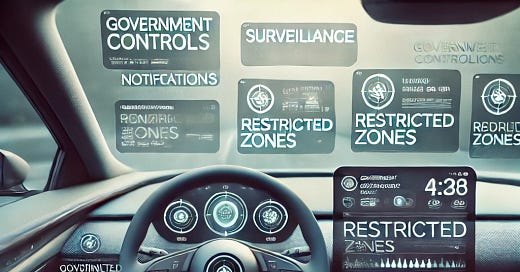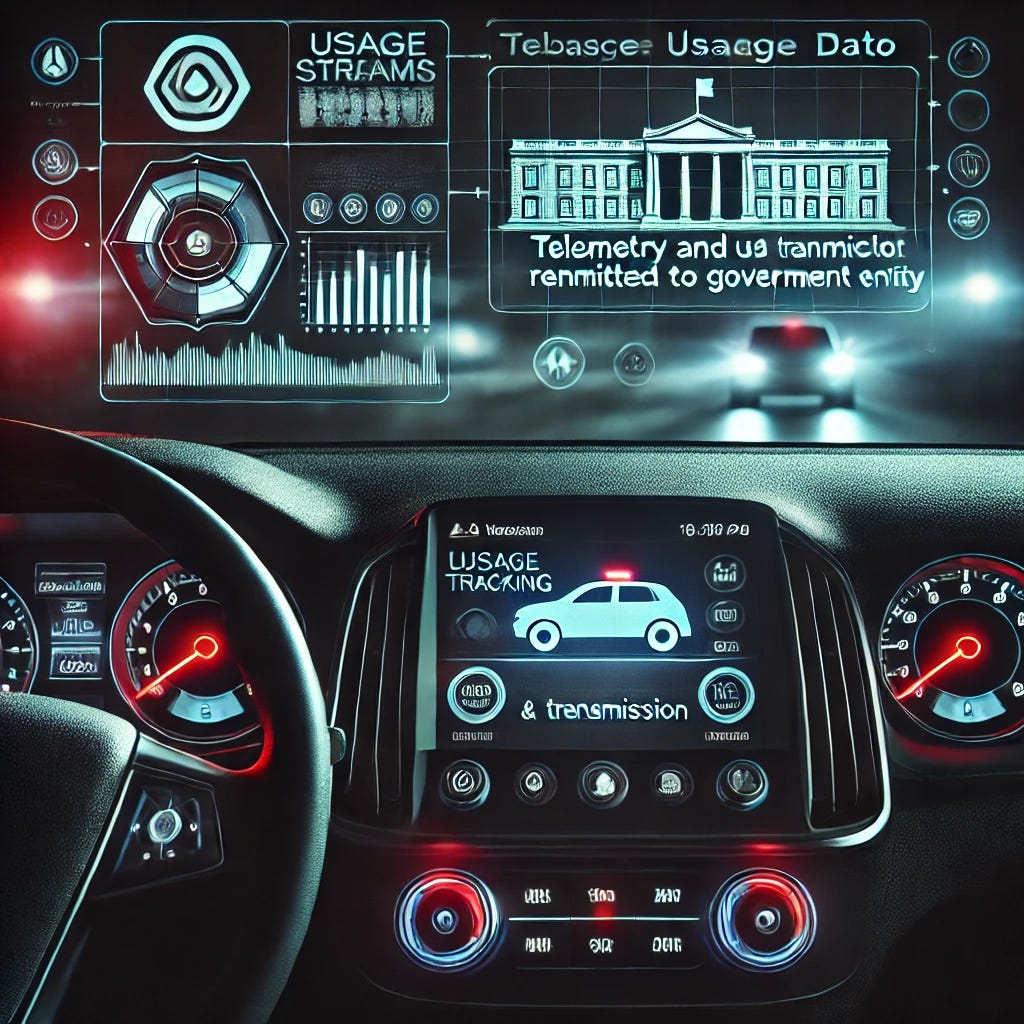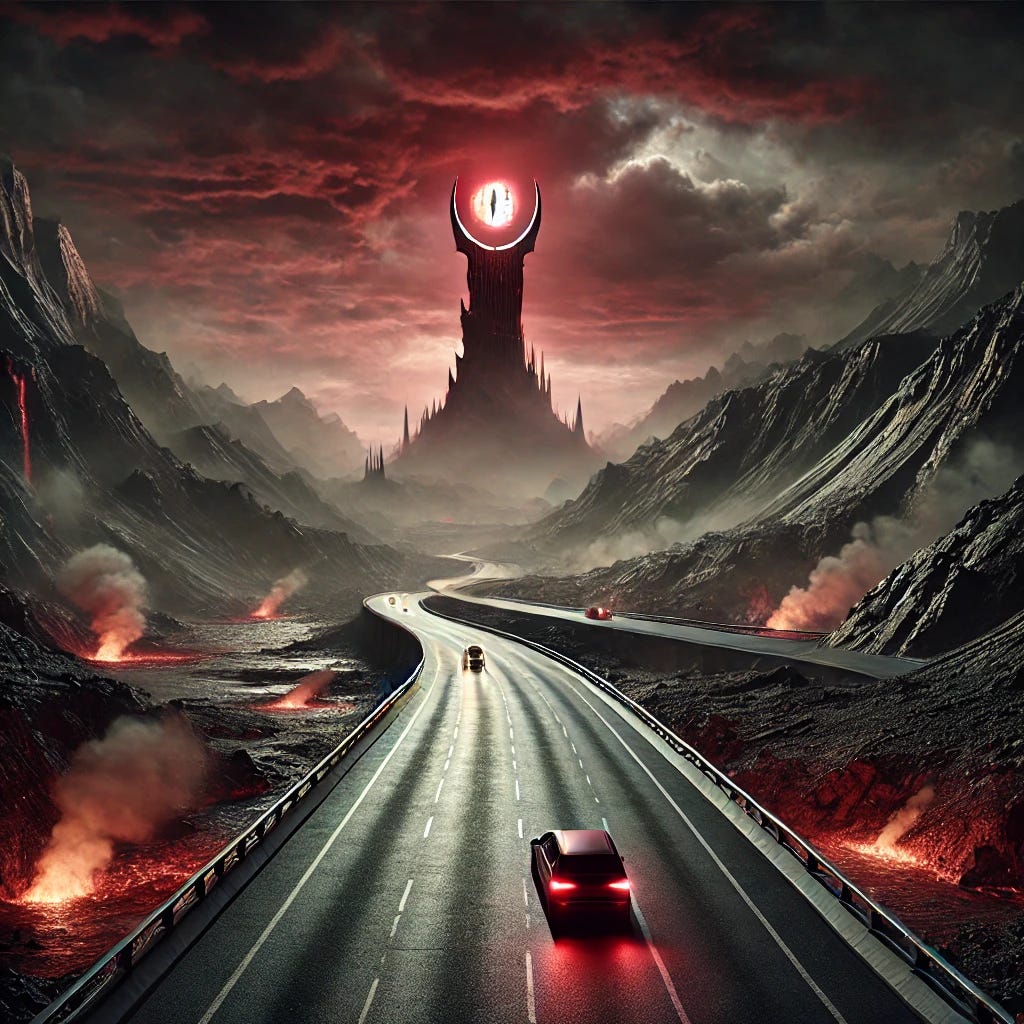We all know the answer, and it's yes! This article will help you articulate questions about the tracking abilities of new vehicles and discuss if they are encroaching on personal freedoms. Make sure you leave comments, there is lots of information to unpack.
For the readers that have been with me from the beginning, they know I have a slight irritation with the automotive industry and how the government is now using them to extend their web of privacy violations.
What added premium unleaded gasoline to the campfire is stories like the one in Wired where hackers found a flaw in a Kia web portal that allowed them to track millions of cars, unlock doors, and start engines at will. So these car manufactures that can't even keep their own house secure, how can they be trusted to be your newest government mandated nanny?
https://www.wired.com/story/kia-web-vulnerability-vehicle-hack-track/
In recent years, modern cars have evolved from machines of freedom to complex technological ecosystems brimming with safety features, sensors, and connectivity.
While these innovations are meant to enhance road safety, we are being watched, monitored, and micromanaged by our own vehicles. With the constant beeping of seat belt warnings, notifications about changing speed limits, alerts for lane departures, and notifications from your phone to the dash, it’s easy to wonder: Are new cars becoming tools of the nanny state?
The allure of automotive ownership was parallel with the freedom of the highway. Road trips stirred up emotions of adventure, freedom, and exploring the road less travelled but now at every corner there is a camera, automated speed trap, license plate tracker, and your own car even reports back to "home base".
First they invade the privacy of my computer, then my phone, and now my car! What's next, my watch? Oh yeah, they did that too!
The Avalanche of Warnings: Safety or Distraction?
Let’s start with the relentless seat belt warning. Sure, wearing a seat belt is crucial, but in many vehicles, the chime starts within seconds of turning on the ignition. The car’s persistent reminder, if ignored, escalates in frequency and volume until it becomes impossible to think about anything else but fastening your seatbelt. But what happens when drivers are bombarded with a barrage of alerts beyond the seat belt?
Many modern vehicles now come equipped with speed limit detection systems that constantly adjust based on GPS data and roadside signs. If you happen to cross over a posted speed limit by even a small margin, a visual alert flashes on the dashboard, and in some cases, an audible warning sounds off. It doesn’t stop there; lane departure warnings, blind-spot alerts, and even forward-collision avoidance systems have drivers on edge.
Do I want a GPS on all the time in my car? Tracking everywhere I go?
These technologies are designed to keep us safe, but there’s a growing argument that they can become overwhelming. When you’re juggling numerous beeps and flashing lights, your focus shifts from the road to the car’s dashboard. This sensory overload can be just as dangerous as the risks the systems aim to prevent.
But ....
When Safety Features Become a Liability
There is undoubtedly a place for safety in driving. Features like airbags, anti-lock brakes, and backup cameras have proven to reduce accidents and fatalities; but when we move beyond essential safety measures to a deluge of real-time audio and visual alerts, the line between helpful and harmful begins to blur. Too much sensory input, especially when it feels like nagging or scolding, can cause drivers to tune out or worse, panic in the face of persistent reminders.
Imagine driving down a highway, focusing on the road, only to have your car beep at you for accidentally crossing a lane without signaling, then beep again because you’re going 6 km/h over the speed limit. In frustration, you glance at the dashboard to silence the alerts. For a few critical moments, your attention has shifted from the road to the car’s notifications - a potentially dangerous distraction.
Telemetry: A Tool of Control?
Telemetry data is a lesser-known aspect of modern car technology but plays a significant role in turning vehicles into surveillance tools. Electric vehicles (EVs), in particular, collect vast amounts of data, from battery usage and charging patterns to driving habits and location tracking. All EVs are constantly connected to manufacturer servers, relaying information that can be accessed and analyzed.
Who actually owns the car? Really? You paid for it, but who controls it? Is not control the true test of ownership?
This connectivity can be useful for maintenance and improving driving efficiency; but it also raises concerns about privacy and autonomy. Who owns this data? How is it being used? In many cases, drivers are unaware of the amount of telemetry being collected and whether this information is shared with insurance companies, governments, or third-party entities. In a worst-case scenario, this data could be used to monitor drivers’ behavior and enforce traffic laws and presto - transforming your car into a tool of the nanny state.
Can we ever evade the Eye of Sauron?
A Little Hope?
General Motor's OnStar was "caught" giving driving habits to insurance companies without consent. When does the terms of service on the new car, you own, will not function unless its connected to the cloud? With the outcry from the car community GM has reversed its sharing data policy to ensure you give consent before they share it with third parties. Third parties does not include "the government".
Day dream sequence, "Driving a 1984 pick up truck, with a gun rack, and a bunch of cash under the seat to pay for fuel." What is your driving day dream? Being #88 in the Daytona 500?
In California, Governor Newsom vetoed a bill that would have forced vehicles to constantly beep if you were speeding. Imagine you are passing someone, or there is a critical issue you need to attend to, you are driving 10 mph over the speed limit and the whole time the vehicle is screeching at you like your seat belt was off?
Not a fan of Gov. Newsom for many reasons but this veto and California's privacy stance is better than most places. So need to give credit where credit is due.
Alex Jones Moment - Eco Pressure
Got your attention now?
I am going to go all Alex Jones on you for a minute, but before you think I have crashed my mental car - I want you to think about this.
Also, before I get blasted for being a Global Warming denier, I believe in efficient and optimal use for all resources, especially energy. The automotive sector only produces 14% to 25% (depending on who paid for the study) of the carbon emissions so demonizing them when there is bigger fish to fry makes it seem like "somethings up". Plus how much resources does it take to make a new car, gas or EV? A ton!
If I was "in charge" I would mandate that they make cars more repairable then disposable. I hate how many cars go to scrapheap because there are "too expense" to fix. Instead of buying a new "eco car" keep the 10 year old car from becoming junk. But that is a longer discussion.
So ....
New cars all shut off when idling. This feature is insane. When I was in England and trying to learn to drive on the "other side" of the road, plus the rental was under powered (gas), and it shut off instantly when I stopped waiting to enter a roundabout, the car would shut off and the delay in restarting was actually slow enough to be dangerous getting into crazy traffic. I can see the feature (maybe) for people commuting, stuck in traffic, or waiting in a snail's pace construction line, but when I am zooming around town, I need the power on demand, not delayed. That is why I prefer a V8 (and not the tomato juice).
It has become apparent to mechanics that the four cylinder shut off and dynamic cylinder shut off is destroying engines. Plus the constant shutting on and off can't be good for a motor, especially as it ages and some of the mechanical pieces that enable the auto-shutoff start to wear, what stress does that put on the rest of the system?
So my Alex Jones moment is - do these efficiency features actually ruin cars so you have to buy electric cars, and in turn pushing the surveillance nation agenda? As between 2030-2035 many jurisdictions worldwide are banning the sale of new gas powered vehicles. If they implement eco technology now that destroys the current generation of gas cars thus eliminates reliable used cars, then people are really pushed to the only option, nanny state approved EVs.
Thoughts?
In Closing, Safety with Balance
While safety technology in cars has undoubtedly saved lives, there’s a growing case that too much monitoring and too many warnings can cross the line from helpful to harmful. When a car becomes a distraction in itself, with endless alerts and beeps, it can detract from the very safety it aims to promote.
Personally, I like all the features if I can turn them off. I wish there is a simple way to go into "back roads" mode and "crazy highway" mode. On the back roads I don't want the car interrupting my Zen time on an old windy road I know like the back of my hand. When on a massive highway with insane drivers, its foggy, rainy, and dark I have had the car warning system save my butt, it was a scary moment and without the "car in lane" alert I would have been smoked.
I want choices (my life = my risk), plus I don't need my car telling the insurance company every time I turn off a "safety" system.
The telemetry data that is silently collected in the background is also causing me to lose my mind. As our vehicles become more connected and data-driven, we find ourselves at the mercy of a system designed to monitor, control, and even penalize our every move.
I am investigating the "eco agenda" to see if some manufactures or motor types are better for these efficiency features or they just generally causing more harm than good.
Beside having a de-googled phone, having a de-connected daily driver (even if its old with new crate engine) is my 2025 goal.
Ultimately we must ask ourselves, where do we draw the line between safety and surveillance? In the quest to eliminate human error, have we turned cars into agents of control? While it’s important to acknowledge the value of safety features, it’s equally important to ensure that they don’t come at the cost of our focus on the road, our personal freedom behind the wheel, and the privacy of an epic road trip adventure.
Thanks for reading,
Will








